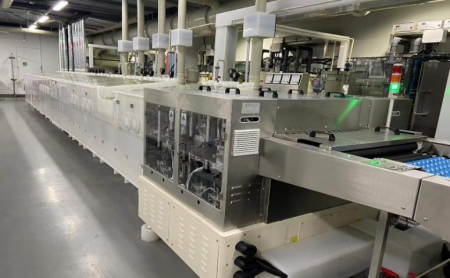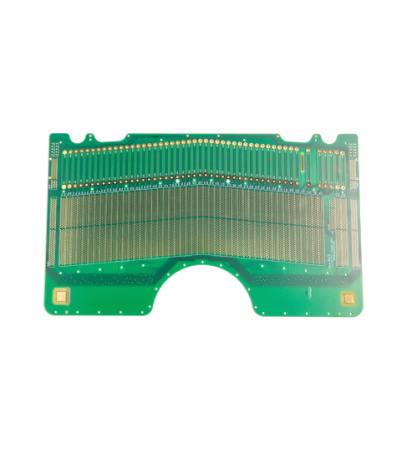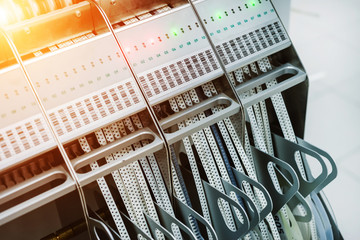- +86-755-23012705
- Building 3, Jinfeng Industrial Park, Fuyong Street, Baoan District, Shenzhen ,China
- [email protected]
The automotive industry is undergoing a monumental transformation. The shift from traditional internal combustion engine (ICE) vehicles to smart electric vehicles (EVs) is not just about changing powertrains but also about a complete overhaul of vehicle technology. This transition is driven by the increasing demand for cleaner, more sustainable transportation options, as well as advancements in connectivity, automation, and electrification.
A critical enabler of this transformation is Printed Circuit Board Assembly (PCBA) technology, which forms the foundation of virtually all electronic systems in modern vehicles, from basic electrical components to sophisticated in-vehicle infotainment systems, autonomous driving technologies, and power management systems.
In this blog, we’ll explore how PCBA technology is supporting the shift from traditional vehicles to smart electric vehicles, and why it is central to the success of this automotive revolution.
One of the key areas where PCBA technology is making a significant impact is in the electric vehicle powertrain. Traditional vehicles rely heavily on mechanical systems to manage power from the engine to the wheels, but electric vehicles (EVs) are fundamentally different. They rely on a complex system of battery management systems (BMS), electric motors, and inverters, all of which are controlled by PCBA-based electronics.
Battery Management Systems (BMS): The BMS is responsible for monitoring and controlling the charging and discharging of the EV’s battery pack. The PCBA within the BMS ensures that the battery operates efficiently, safely, and within its optimal voltage range. This includes protecting the battery from overcharging, deep discharge, and thermal imbalances. As EV battery technology advances, the complexity and capability of the PCBs used in the BMS systems are also increasing. High-density, high-reliability PCBAs are necessary to handle the high currents and voltages involved, while also ensuring durability in demanding environments.
Inverters and Electric Motors: In an electric vehicle, an inverter is used to convert the DC power from the battery into AC power to drive the electric motor. PCBA technology is crucial in the design and functioning of inverters, as the printed circuit boards inside inverters need to handle high-frequency switching and high power loads. The PCBA also controls the motor’s speed and torque, enabling smoother and more efficient driving.
PCBA technology enables all of these critical components to function seamlessly, ensuring the efficiency and performance of the electric powertrain.

In addition to power management, the shift to smart EVs also involves a significant enhancement in in-vehicle infotainment systems, connectivity, and human-machine interfaces (HMIs). As consumers demand more advanced features like voice control, navigation, real-time traffic updates, and connectivity with smartphones and other devices, the role of PCBAs becomes even more crucial.
PCBs in infotainment systems control everything from touchscreens and displays to audio systems and Bluetooth modules. These systems require highly integrated PCBs with advanced signal processing capabilities to handle multimedia data, high-speed communication, and real-time user interaction. With the rise of 5G connectivity, the demand for high-speed data transmission within the vehicle is also increasing, requiring more sophisticated PCBAs capable of supporting Wi-Fi, Bluetooth, and cellular communication technologies.
Furthermore, autonomous driving systems, which are becoming a cornerstone of smart EVs, rely heavily on PCBA technology. These systems use a combination of LIDAR, radar, and camera sensors to navigate and make decisions in real-time. The processing of data from these sensors is handled by PCBAs in the vehicle’s central control units. These PCBs must be capable of processing vast amounts of data rapidly and reliably to ensure the safe operation of autonomous vehicles.
For both electric and autonomous vehicles, safety is a top priority. The complexity and critical nature of the electronics in these vehicles mean that high-reliability PCBAs are essential for both safety features and overall vehicle operation. As vehicles become smarter and more connected, the risk of electronic failure could have far-reaching consequences.
Advanced Driver Assistance Systems (ADAS): ADAS includes features like lane-keeping assist, automatic emergency braking, and adaptive cruise control, all of which rely on sensors, cameras, and radar. These systems require highly reliable PCBs that can function in extreme environments while maintaining robust signal integrity. The PCBs must also meet strict automotive standards for functional safety, such as ISO 26262.
Redundancy and Fail-Safe Mechanisms: In safety-critical systems like autonomous vehicles or electric drivetrains, redundancy is built into the system design. Multiple PCBAs may be deployed to ensure that if one system fails, another can take over. This redundancy is essential for maintaining the vehicle’s ability to operate safely in real-world conditions.
Automotive PCB manufacturers are required to meet stringent automotive-grade standards, such as AEC-Q100, to ensure that their boards are capable of enduring the harsh conditions of automotive environments—extreme temperatures, humidity, vibration, and shock—without compromising safety.

Electric vehicles generate significant heat, especially in the battery pack, powertrain, and charging systems. Thermal management is a critical aspect of EV design, and PCBAs are central to ensuring that systems run efficiently and safely at the appropriate temperature.
PCBs used in electric vehicle powertrains and batteries are designed to dissipate heat efficiently. Thermal vias, heat sinks, and specialized thermal management materials are integrated into PCBs to prevent overheating and ensure optimal performance. Effective thermal management also improves the energy efficiency of the vehicle, allowing it to travel longer distances on a single charge, a key factor in EV adoption.
As energy efficiency is a key focus in the EV industry, advancements in PCBA technology are enabling lower power consumption and greater energy recovery in areas like regenerative braking systems, where energy is captured during braking and used to recharge the battery.
As the automotive industry moves toward fully electric and autonomous vehicles, the role of PCBA technology will continue to grow. Innovations in flexible PCBs, multi-layer boards, and 3D printing will allow for even more compact, efficient, and reliable designs. Additionally, advancements in system-in-package (SiP) technology and integration of power electronics will continue to reduce the size and weight of vehicle electronics, a critical consideration for improving the overall efficiency and performance of electric vehicles.
Moreover, as vehicle-to-everything (V2X) communication becomes more widespread, allowing vehicles to communicate with each other and their environment, the role of PCBs in enabling these systems will be crucial. Smart EVs will rely on PCBs to process and transmit vast amounts of data in real-time, ensuring safer, more efficient, and more connected driving experiences.

PCBA technology is at the heart of the automotive industry’s shift from traditional internal combustion engine vehicles to smart, electric, and autonomous vehicles. From enabling the electric powertrain to supporting cutting-edge infotainment, connectivity, and safety systems, PCBAs are integral to the design and performance of modern vehicles. As the demand for cleaner, smarter, and more connected transportation continues to grow, PCBA technology will evolve alongside it, helping to drive the future of the automotive industry. Whether in the form of advanced sensors, electric powertrains, or autonomous driving systems, PCBs will continue to power the innovation that is shaping the vehicles of tomorrow.
Your Trusted Partner for PCB Success: XPCB Limited
Let XPCB Limited be your guide to PCB success. Our comprehensive PCB manufacturing, rapid prototyping, and turnkey PCBA services are designed to meet your needs with ease. Count on us to deliver reliable solutions that exceed your expectations. With XPCB Limited, your journey to PCB excellence starts here.






XPCB Limited is a premium PCB & PCBA manufacturer based in China.
We specialize in multilayer flexible circuits, rigid-flex PCB, HDI PCB, and Rogers PCB.
Quick-turn PCB prototyping is our specialty. Demanding project is our advantage.
Tel : +86-136-3163-3671
Fax : +86-755-2301 2705
Email : [email protected]
© 2024 - XPCB Limited All Right Reserve
